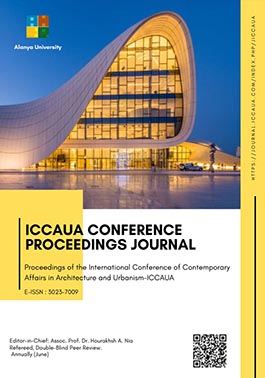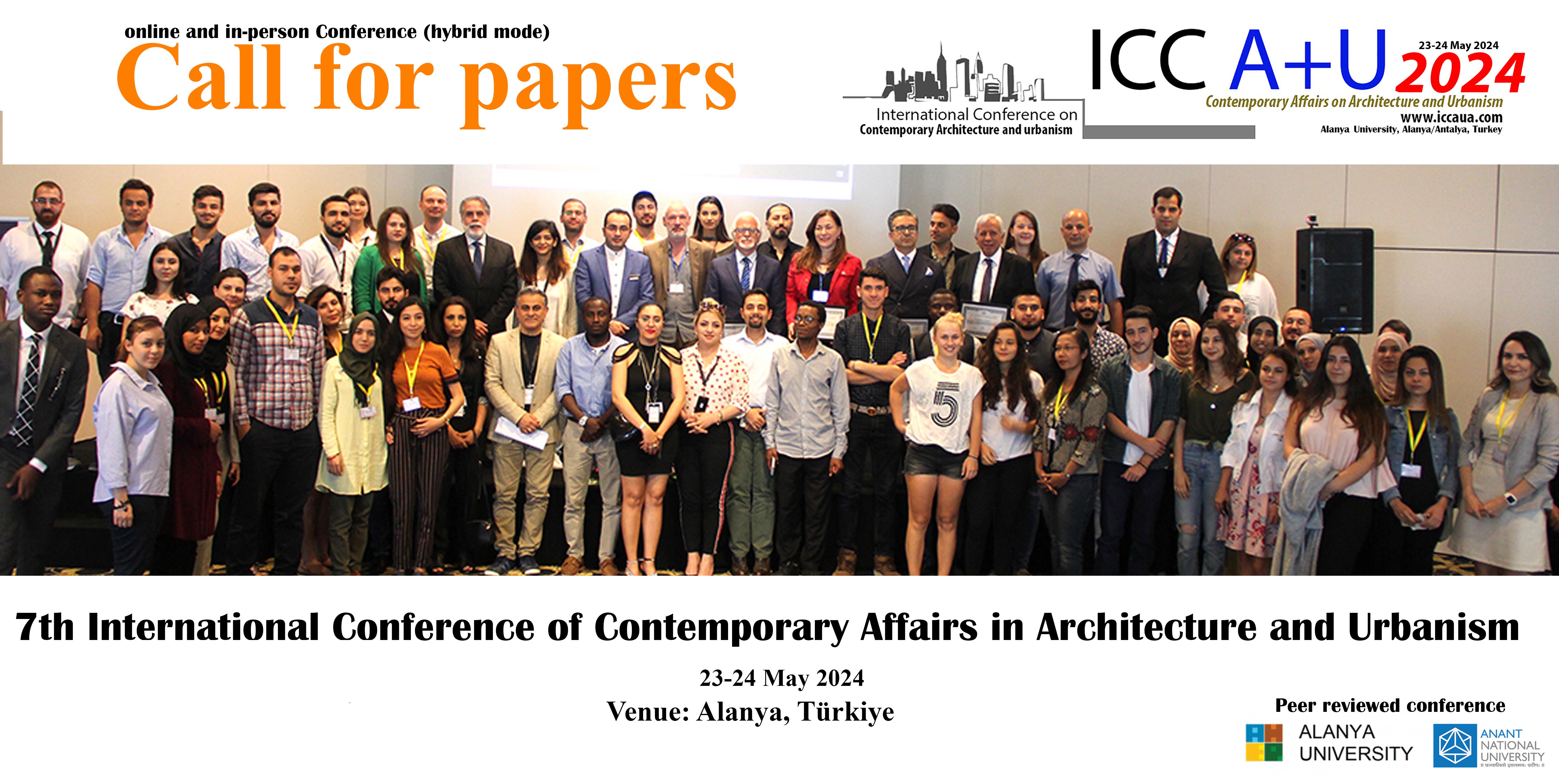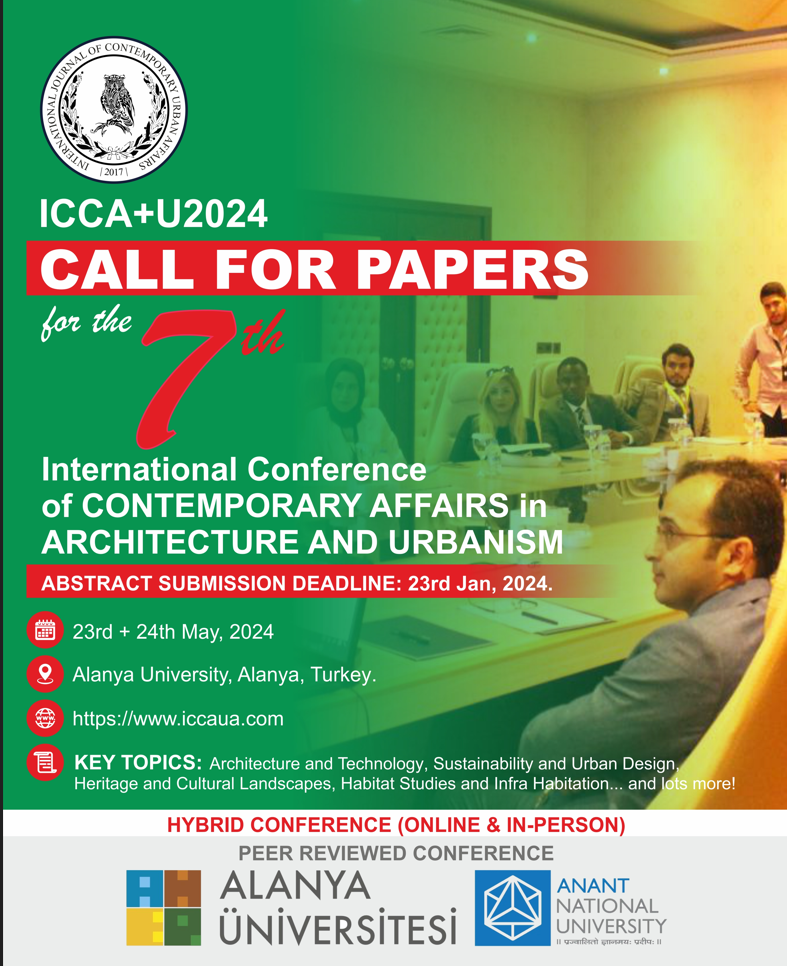The Effect of Cognitive Semiotics on The Interpretation of Urban Space Configuration
DOI:
https://doi.org/10.38027/ICCAUA2021227N9%20The%20Effect%20of%20CognitiveKeywords:
Cognitive Semiotics, Urban Space Configuration, Connotative, Urban Sign, Shared knowledgeAbstract
Urban space is composed of various dimensions and contexts that generate urban forms. The spatial distributions of urban elements have different layers of connotative indications associated with Society's shared knowledge. The implying semiotics affect space configuration that could lead either to generate a compact or sprawl urban fabric. However, it is essential to know how the semiotic elements affect space configuration. The research aims to locate semiotic elements that have a role in space configuration. The research methodology depends on finding the semiotic values through a practical survey combined with a GIS tool to locate the correlations between the most valuable signs using the chi-square method. Also, to build a model for assessing the cognitive semiotic elements. The model gives a clue to explain how the spatial configuration is affected by the existence of semiotic values and shifts its values accordingly.
Downloads
Downloads
Published
How to Cite
Issue
Section
License
Copyright (c) 2024 Mustafa Aziz Amen, Hourakhsh Ahmad NIA

This work is licensed under a Creative Commons Attribution 4.0 International License.









